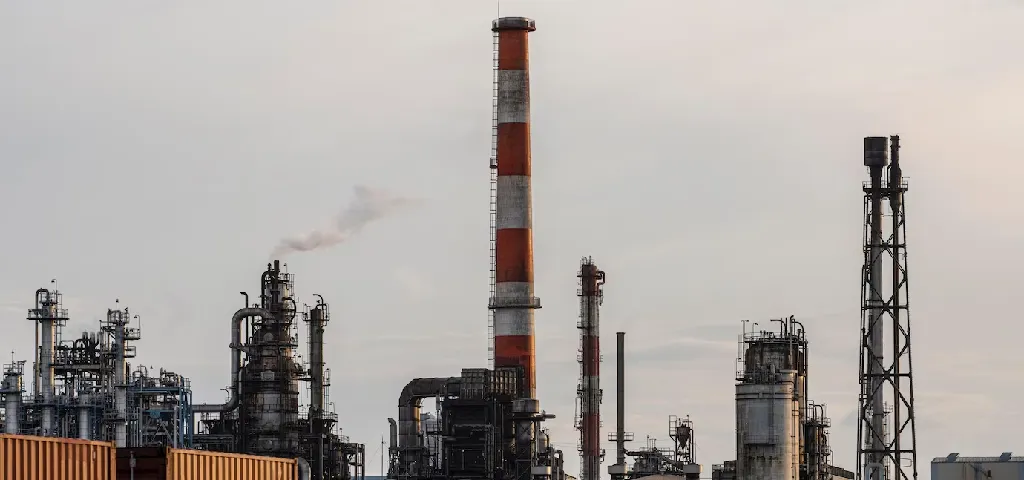In the contemporary landscape of global industries, the paradigm of sustainability has shifted from a mere buzzword to a pivotal directive shaping business strategies across sectors. Among these, the oil and gas industry, renowned for its intricate supply chains and significant environmental impact, stands poised at a transformative crossroads. The imperatives of climate change, environmental stewardship, and societal expectations have catalyzed a remarkable shift towards supply chain sustainability within the realm of oil and gas.
Traditionally, the oil and gas sector operated within a linear supply chain model focused on extraction, refinement, and distribution with minimal consideration for environmental consequences or social implications. However, as the world grapples with the urgency of climate change and seeks viable solutions, industry leaders are recognizing the imperative to reimagine their supply chains through a sustainability lens.
A pivotal aspect of this transformation lies in embracing renewable energy sources and reducing carbon footprints across the supply chain. This involves innovative technologies to minimize emissions during extraction, adopting cleaner energy alternatives for operations, and investing in carbon capture and storage initiatives to mitigate the impact of fossil fuel consumption.
Moreover, fostering supply chain sustainability in the oil and gas industry demands a comprehensive reevaluation of procurement processes. Companies are increasingly scrutinizing their suppliers, prioritizing partnerships with entities committed to ethical practices, environmental conservation, and social responsibility. This shift not only mitigates risks associated with unsustainable practices but also fosters a ripple effect, incentivizing suppliers to adopt more sustainable methods themselves.
Furthermore, digitalization and data-driven approaches have emerged as instrumental tools in enhancing supply chain sustainability within the oil and gas industry. Advanced analytics, IoT (Internet of Things) sensors, and blockchain technology enable real-time monitoring of processes, enhancing efficiency, reducing waste, and ensuring transparency throughout the supply chain.
The integration of circular economy principles has also gained traction in this transformational journey. Reimagining waste as a valuable resource, the industry is exploring ways to repurpose by-products, optimize resource utilization, and minimize landfill contributions. Initiatives such as repurposing drilling waste for construction materials or employing innovative recycling technologies showcase the industry’s commitment to a more sustainable future.
However, supply chain sustainability in the oil and gas industry transcends environmental stewardship alone; it encompasses social responsibility and community engagement. Companies are increasingly investing in community development programs, fostering local employment, and collaborating with stakeholders to ensure inclusive growth and equitable distribution of benefits.
Nonetheless, the transition towards a sustainable supply chain in the oil and gas sector is not devoid of challenges. The capital-intensive nature of the industry, coupled with existing infrastructure and operational complexities, poses hurdles in swiftly embracing sustainable practices. Moreover, geopolitical dynamics, regulatory frameworks, and market fluctuations add layers of complexity, necessitating a nuanced approach to navigate this transformative journey.
Yet, amidst these challenges lie immense opportunities. Embracing sustainability offers the oil and gas industry a competitive edge, fostering resilience in an evolving market landscape while bolstering brand reputation and investor confidence. Furthermore, aligning with global sustainability goals and regulatory mandates positions companies as responsible corporate citizens, driving innovation and fostering long-term viability.
Conclusion
In conclusion, the evolving narrative of supply chain sustainability marks a pivotal turning point for the oil and gas industry. Embracing this paradigm shift not only addresses environmental concerns but also unlocks multifaceted benefits, fostering resilience, innovation, and long-term prosperity. By recalibrating their supply chains to prioritize sustainability, oil and gas companies embark on a transformative journey towards a more responsible and resilient future.
The journey towards supply chain sustainability within the oil and gas industry is arduous, but it signifies a paradigm shift towards a more responsible and resilient future. Through recalibrating supply chains to prioritize sustainability, these companies not only address environmental concerns but also unlock multifaceted benefits fostering innovation and long-term prosperity.






